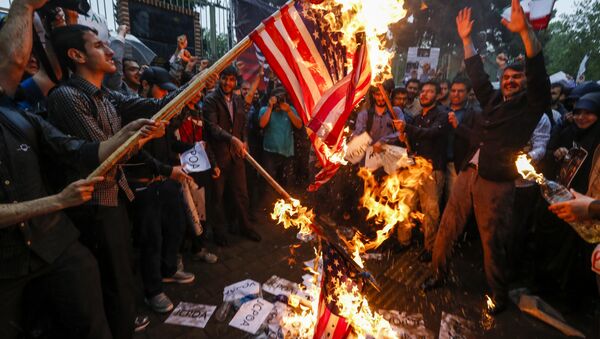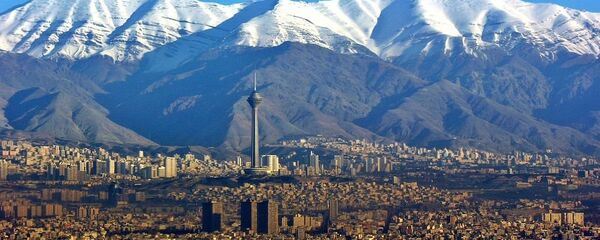Zarif has accused the United States of focusing on "a psychological war against Iran and its business partners," according to the Iranian news agency Tasnim.
The statement came after the Iranian Students' News Agency (ISNA) cited Zarif as saying that Washington's withdrawal from the Iran nuclear deal could affect US national interests.
READ MORE: US Wants Iran to Become a Country That Never Says No to Washington – Prof
"From the time that Trump announced the withdrawal from the nuclear deal, America has not been able to reach its goals," he underscored.
Zarif also pointed the finger at those in Iran whom he said chose a political fight "instead of laying the groundwork for using the opportunities presented by the [Iran] nuclear deal" also known as the Joint Comprehensive Plan of Action (JCPOA).
"This political fight led to despair and disappointment," he pointed out.
READ MORE: Iran Not a Pushover and Will Never Become a US Vassal State – Analyst
Earlier, Zarif told CNN that Iran does not want "to revisit" the JCPOA and that Tehran wants "the United States to implement that nuclear deal."
Additionally, the top Iranian diplomat accused Washington of being addicted to sanctions, which he described as a "disease", saying that Washington's "closest allies" are opposed to anti-Iranian restrictive measures.
He lamented the fact that Washington had failed to learn that "at least as far as Iran is concerned, sanctions do produce economic hardship but do not produce the political outcomes that they intended them to produce." Zarif stressed that years of foreign economic pressure made Iranian people resistant to sanctions, but admitted that "US sanctions have always hurt."
READ MORE: Iran Poised To Boost Defense Capabilities Amid Worsening Relations With US
On August 7, the White House announced the re-introduction of the first phase of the anti-Iranian sanctions, slapping restrictive measures on trade with Tehran involving the Iranian currency, sovereign debt, cars, aircraft, gold and other metals.
Trump announced the move in early May, pledging to reinstate anti-Iranian sanctions, including those which prevent other countries from doing business with the Islamic Republic.





